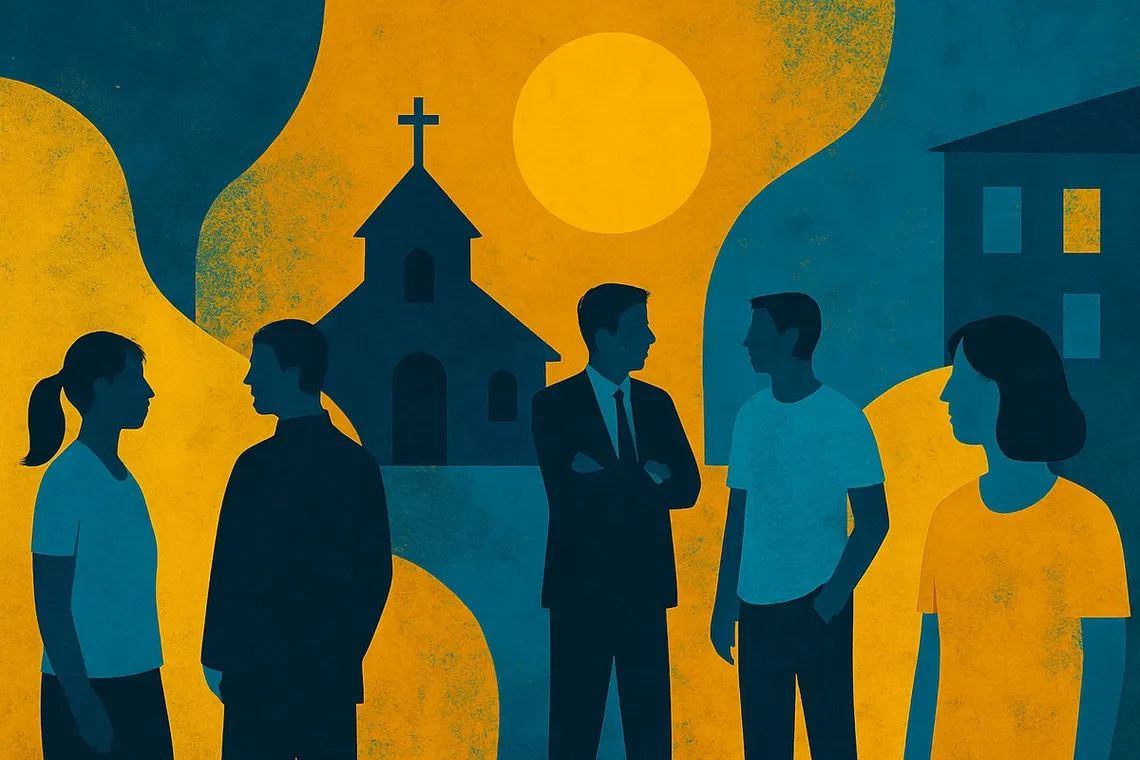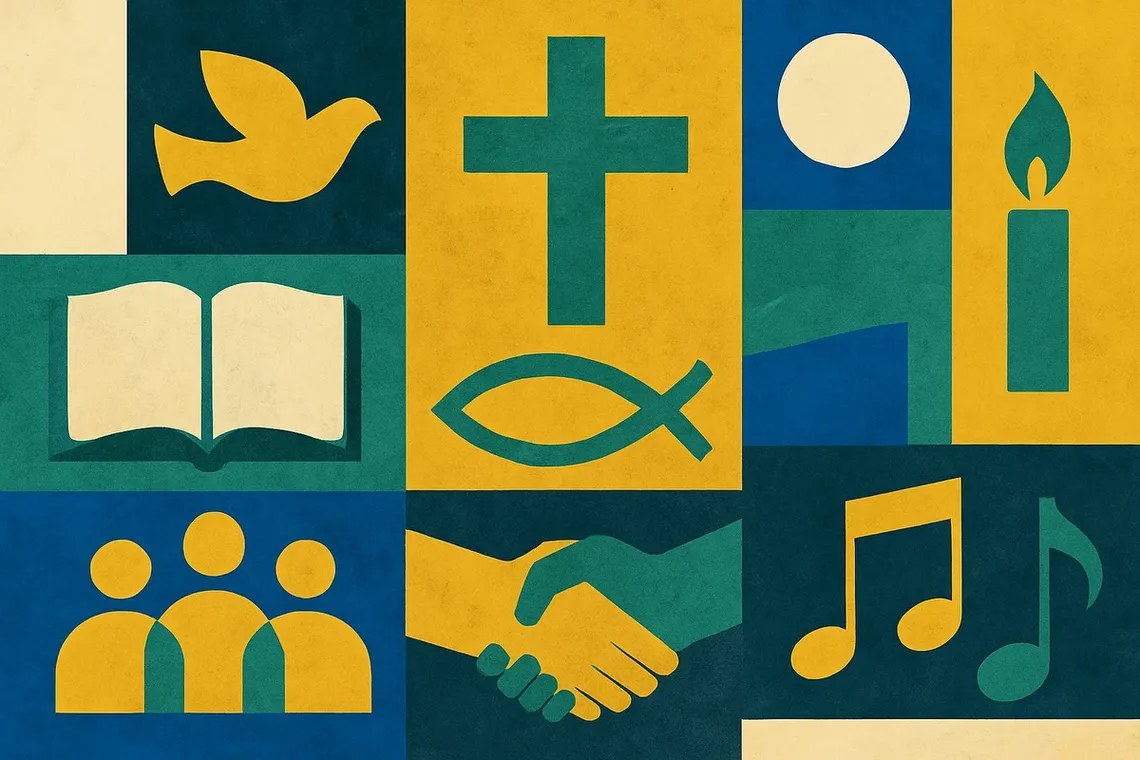Eyes on the Future: Seeing and Protecting Every Child
3 min read

It’s the call no ministry leader wants to get — that a church employee or volunteer has been accused of sexually abusing a child.
As you focus on staying connected with your people, you must also remember to protect them. Unfortunately, predators see churches as an easy target, taking advantage of situations like volunteer turnover, lax screening measures, delayed training, loss of supervisory staff, or the natural tendency for believers to trust others.
There’s a heightened legal duty when you’re ministering to children. “This duty exists regardless of where children’s ministry takes place — whether it’s in-person at church, off campus, or via online or web platforms,” noted Kyle Johnson, corporate counsel at Brotherhood Mutual Insurance Company.
That’s why it’s important to acknowledge and plan for the possibility that child sexual abuse could happen at your ministry.
A formal abuse prevention document establishes a culture of safety and accountability with a written record of policies, practices, guidelines, and procedures designed to protect the vulnerable.
Critical Areas to Address in
Your Written Child Protection Policy
In a season of constant change, it’s more important than ever to ensure your ministry is following its policies and procedures — especially when it comes to staff and volunteers who work with children.
“Ministries tend to do a good job in understanding basic procedures to screen out predators. But screening alone isn’t enough,” said Steve Case, vice president and general counsel at Brotherhood Mutual. A formal abuse prevention document establishes a culture of safety and accountability with a written record of policies, practices, guidelines, and procedures designed to protect the vulnerable.
Make sure your child abuse prevention plan addresses the following areas:
Six-month rule —A requirement that individuals interested in volunteering with children attend your church for at least six months. Sexual predators seek easy access to children and typically won’t wait a long period of time to gain contact.
Training and education — Educate anyone who will be working with children 17 years and younger in your ministry. Have training in place that empowers your volunteers and employees to recognize the signs of predatory and grooming behaviors. Check out MinistryDefender Solutions for abuse prevention training.
Strengthen screening processes — Everyone working with the vulnerable — both paid and volunteer — should be screened, even if you know them well. Unless a sexual predator has been previously convicted, the individual most likely won’t show up on a criminal background check. That’s why you need a multilayered screening process that includes four essential elements:
1. Written application.
2. Personal interview.
3. Background check.*
4. Reference check.
*Note: When doing a background check, you’ll want to work with a reputable provider to do a national criminal record check and a local background check. Brotherhood Mutual recommends Background ScreeningMinistryDefender Solutions for background checks. Plus, you can add real-time arrest notifications. They also have an automated reference check system that enables candidates to drive their own reference checks. This saves ministry leaders hours of work and frustration, especially with high-rotation areas of ministry.
Be Seen Seeing
Good supervision helps to deter abuse. The goal is to prevent situations that leave one employee or volunteer alone with minors in rooms, vehicles, restrooms, or via technology.
Ideally, ministries should have procedures in place to avoid, or at least limit, opportunities for one-on-one interaction between adult employees or volunteers and minors. A “Two-Adult Rule” or “Rule of Three” could help your ministry meet this standard.
“The two-adult rule is the gold standard for child supervision. The rule requires that two screened and unrelated adults be present at every function and in each classroom (Sunday school), vehicle, or other enclosed area during all activities involving children, youth, or vulnerable adults,” said Johnson.
This rule creates accountability that helps prevent and deter misconduct. It also helps reduce the ability for anyone to make a false accusation against the volunteer or employee.
This rule should be followed in all settings where adults will be supervising or engaging with minors, including transportation, classrooms, and locker rooms.
When the two-adult rule can’t be supported, we recommend the rule of three, which requires at least three individuals to be present in each enclosed area, with at least one being a screened adult employee or volunteer. When applying the rule of three, ministries should consider the child's age and mental capacity, ensuring that children are at least 5 years old.
Note: Some states have additional requirements for supervision.
See Something, Say Something: Mandatory Reporting
Your ministry’s written plan should include internal and external procedures for reporting child abuse and neglect. Every state has its own mandatory reporting requirements, and an observation from your employees and volunteers during your activities might trigger these requirements. Written procedures help satisfy state requirements and direct staff if they suspect a child might be the victim of abuse or neglect.
Shielding the Future: Key insurance and legal essentials
When seeking sexual abuse and misconduct coverage, it is helpful to share your ministry’s written abuse prevention policies and procedures with the insurance company. These policies should apply to all activities and events involving children, youth, or vulnerable adults.
Consider taking an inventory of all your activities to help make sure that your ministry’s policies address all potential exposures. “Children’s programming and youth ministry activities might quickly come to mind, but think about policies addressing youth sports, vacation Bible school, special needs ministry, or other less frequent activities involving minors,” noted Case.
Even the best prevention measures do not totally eliminate the risk of abuse. You can protect your ministry by working with your insurance company to make sure you have the right coverages in place.
Check to make sure your ministry has liability insurance that covers not only claims of child sexual abuse, but also sexual misconduct and harassment. If your ministry is named as part of a civil lawsuit, sexual abuse and misconduct insurance can help you hire an attorney to defend the ministry and provide money to pay for a court judgment or settlement.
“Litigation almost always includes the organization that the predator used to gain access to children either as an employee, volunteer, teacher, or coach, for example,” mentioned Johnson.
Care and Support for Survivors
In addition to causing immediate physical harm, the trauma of abuse can inflict devastating, life-long effects. The child can benefit from immediate counseling from a professional that specializes in this area.
Ask how your insurance company can assist you in caring for someone who is a victim of child sexual abuse. Are there funds available so you can offer outside counseling services?
Why is offering outside providers for counseling often a good idea? Even if your ministry staff have specialized training in this area, depending on the situation, trying to provide this support in-house may not be appropriate if the abuse was sustained in the church or the allegations involve a church leader, employee, or volunteer.
Abuse that occurs within a ministry setting can cause overwhelming obstacles to the child’s overall faith development as well as trust issues regarding church. The way you respond can have a direct impact on both and can be a tangible demonstration of your ministry’s commitment to protecting the minors in your care.
Posted June 2025
The information provided in this article is intended to be helpful but does not constitute legal advice and is not a substitute for the advice from a licensed attorney in your area. Ministries are strongly encouraged to regularly consult with a licensed local attorney as part of your risk management program.


